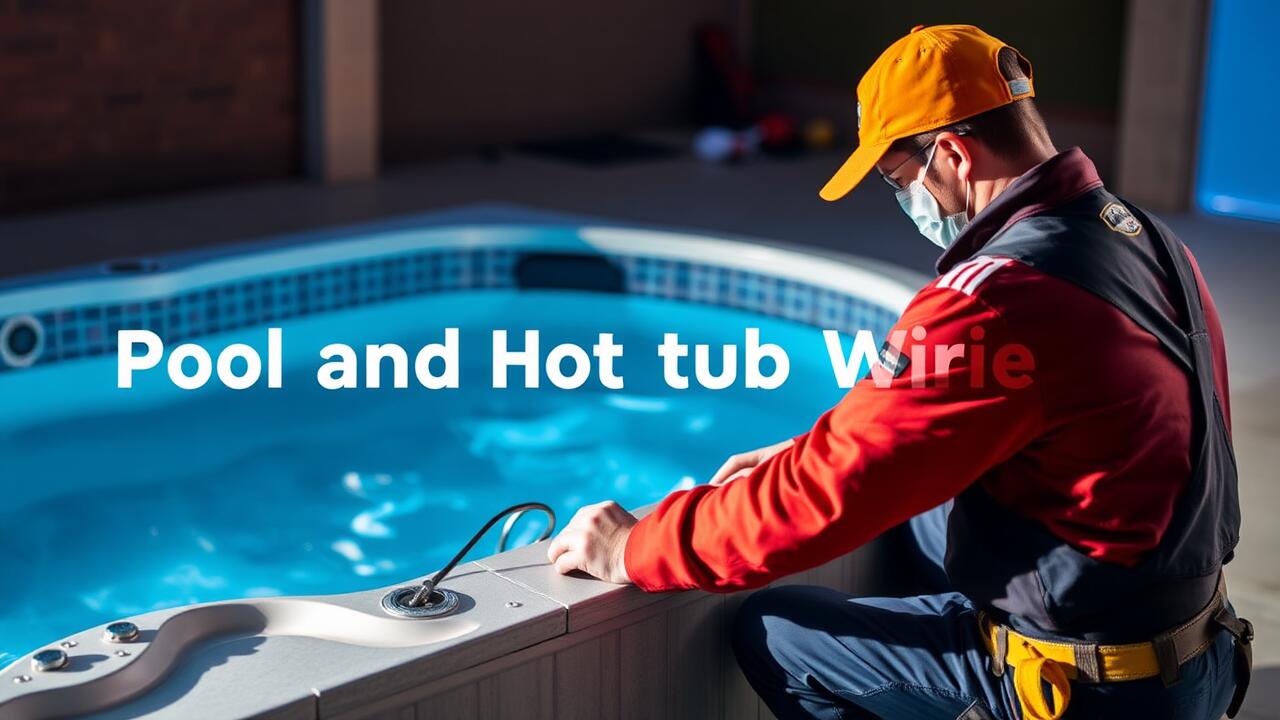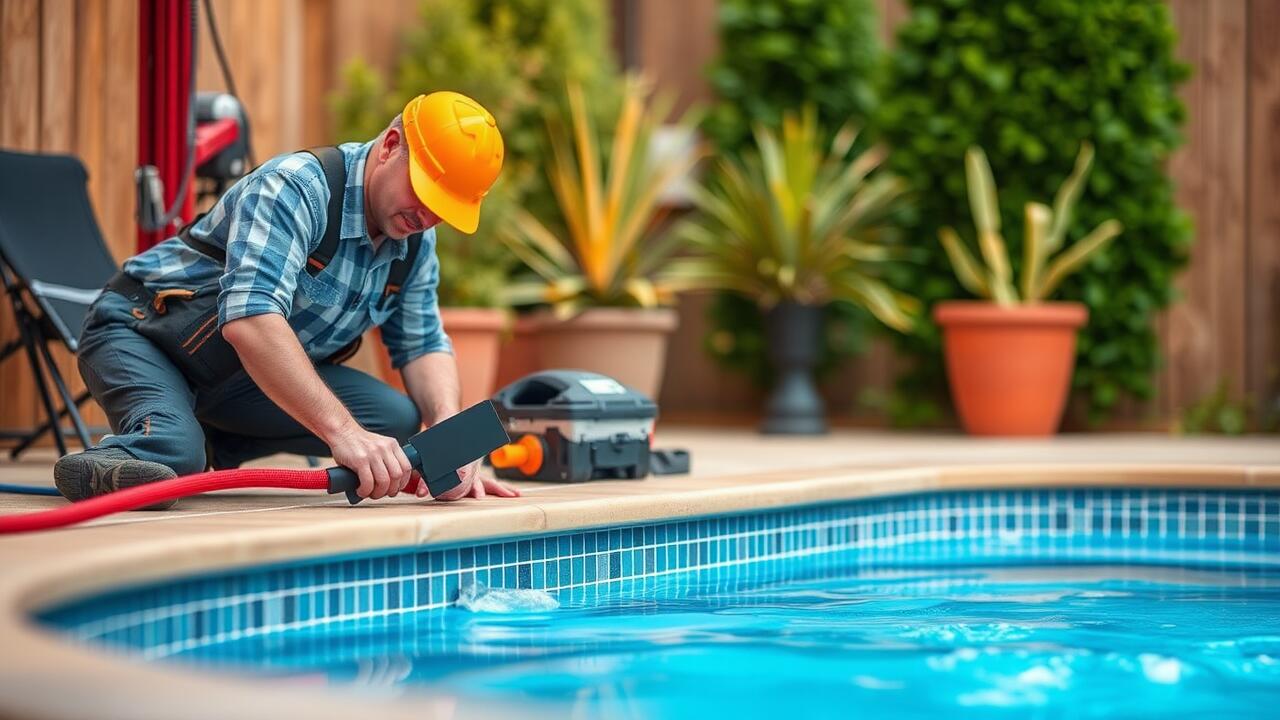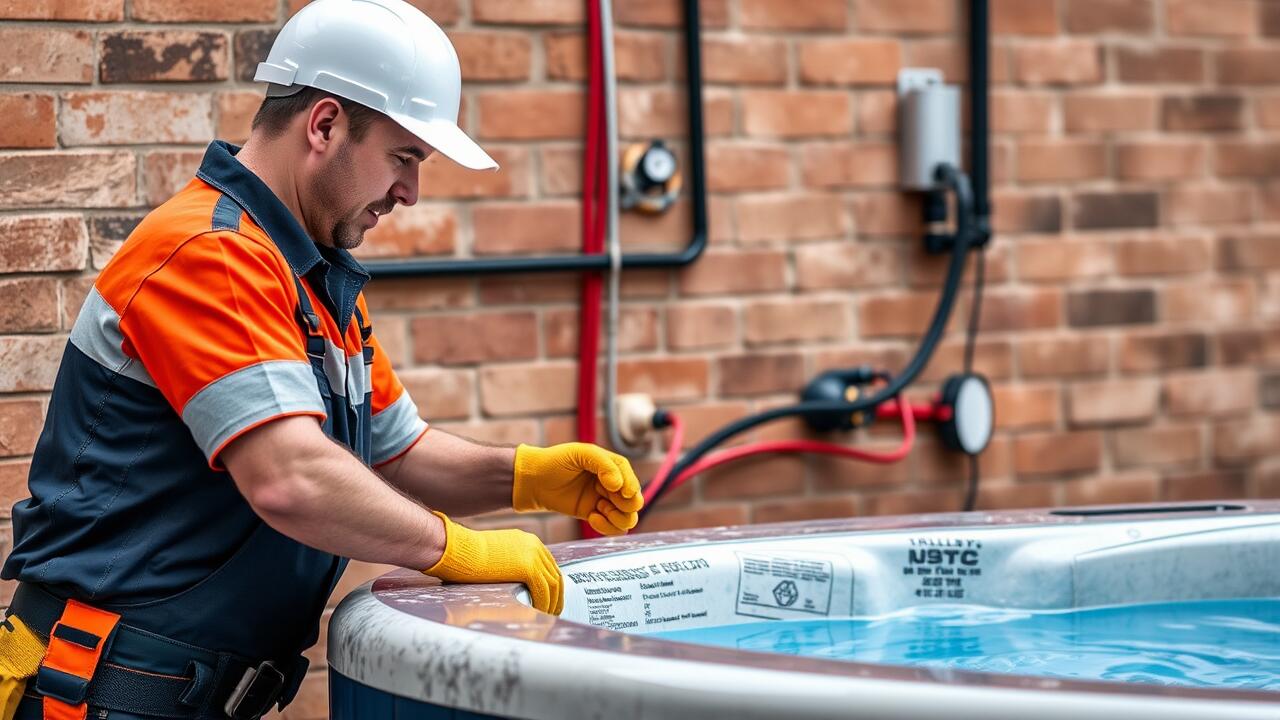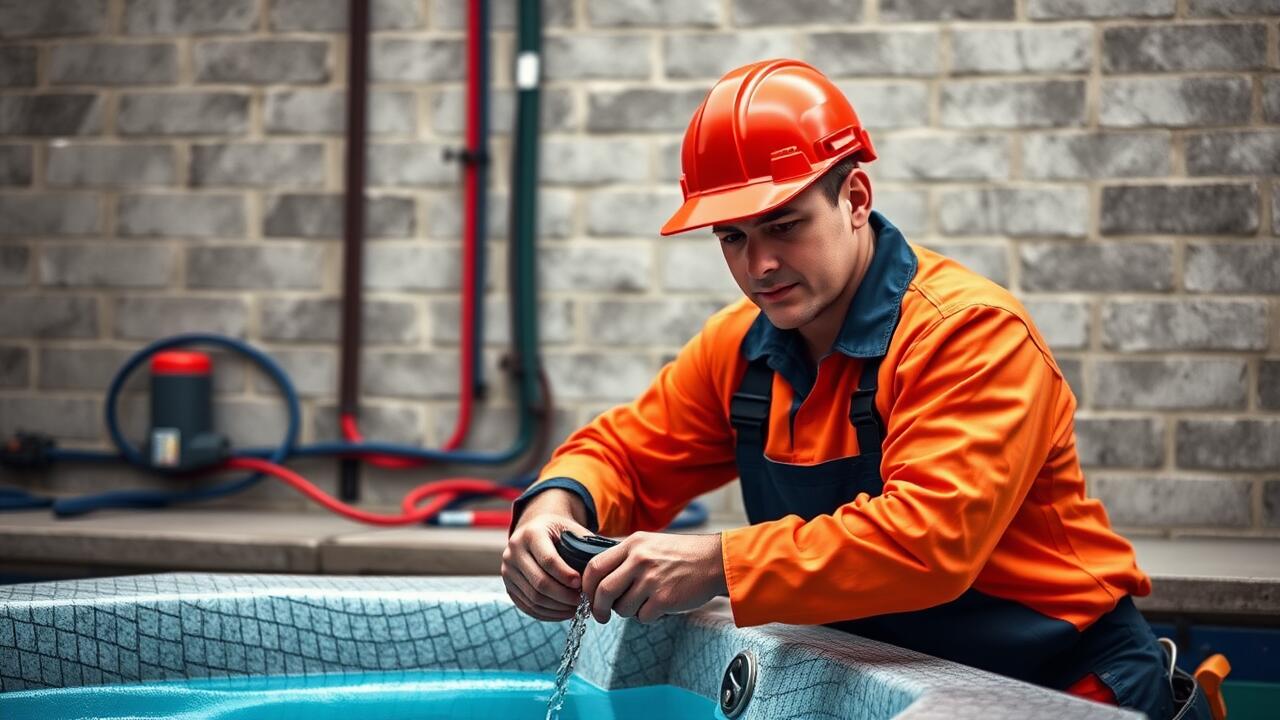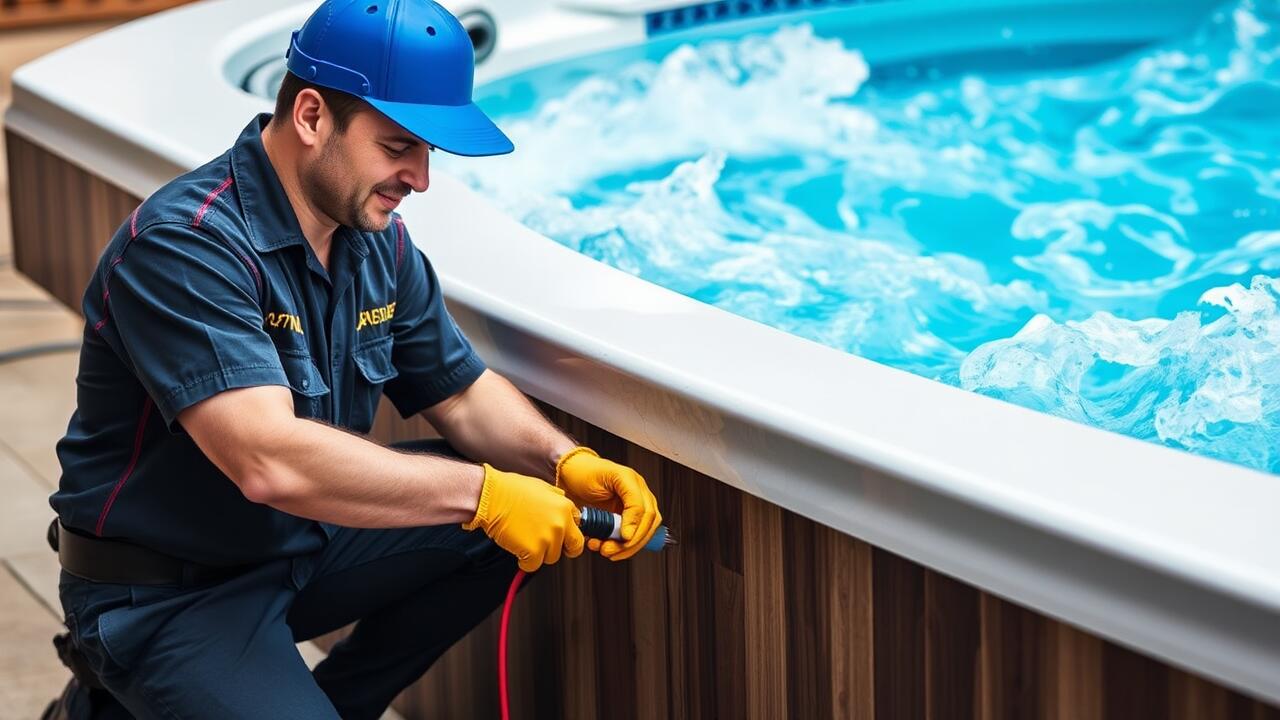
Common Misconceptions About GFCI
One common misconception about Ground Fault Circuit Interrupters (GFCIs) is that they are only necessary for residential swimming pools and hot tubs. Many people believe that these devices are not required in all aquatic environments. However, GFCIs play a crucial role in any area where water and electricity coexist. This includes not just pools and hot tubs, but also outdoor lighting and other electrical outlets in proximity to water sources.
Another myth revolves around the belief that GFCIs are infallible and do not require regular maintenance. While GFCIs are designed to enhance safety by interrupting the electrical circuit when a fault is detected, they can still malfunction or become obsolete over time. Frequent testing is necessary to ensure they are functioning correctly, especially in settings like Pool and Hot Tub Wiring Gulfton, Houston, where environmental factors can contribute to wear and tear. Understanding these misconceptions can lead to better safety practices and compliance with electrical codes.
Clarifying Myths and Facts
Many people believe that GFCI outlets are only necessary for outdoor circuits or areas exposed to water. This misconception can lead to insufficient protection in places where electrical devices are used near water sources, such as pools and hot tubs. GFCIs are designed to detect ground faults that could result in electric shock, making them critical in any area where moisture is present, including bathrooms, kitchens, and wet locations.
Another common myth is that GFCI devices can eliminate all electrical hazards associated with pools and hot tubs. While GFCIs significantly reduce the risk of electrocution, they do not provide complete safety. Regular maintenance, proper equipment installation, and adherence to local electrical codes are essential to ensure safety. For those in regions like Clear Lake City, Houston, understanding the specific requirements for Pool and Hot Tub Wiring is vital to achieving compliance and enhancing safety.
Local Code Requirements for GFCI in Water Areas
Local codes typically dictate the requirements for GFCI protection in areas where water is present, such as around pools and hot tubs. These codes are designed to enhance safety to prevent electrical shocks and other related hazards. In many jurisdictions, GFCI outlets must be installed in locations where electrical equipment may interact with water. This includes outdoor receptacles and lighting used in the vicinity of pools and hot tubs.
In Midtown, Houston, compliance with these local regulations is essential for any installation or renovation project involving Pool and Hot Tub Wiring. Homeowners and contractors must ensure that GFCI protection is not just implemented but also regularly tested and maintained. Adhering to these requirements helps create a safer environment for those enjoying recreational water activities while minimizing the risk of electrical incidents.
Understanding Electrical Codes and Compliance
Electrical codes play a crucial role in ensuring safety and compliance in residential and commercial settings. These codes dictate specific standards for wiring and devices installed in and around pools and hot tubs, addressing potential hazards associated with water and electricity. Homeowners and contractors in River Oaks, Houston must stay informed about the latest regulations to avoid violations that could endanger lives or lead to hefty fines.
Compliance with the National Electrical Code (NEC) is essential for any installation related to pool and hot tub wiring. GFCI protection is a critical requirement, designed to prevent electrical shock in wet areas. Adhering to local amendments and additional regulations can further ensure a safe and functional electrical system. When dealing with Pool and Hot Tub Wiring River Oaks, Houston, understanding these codes and their application becomes imperative for both safety and legal compliance.
Troubleshooting GFCI Issues
When GFCI outlets trip unexpectedly or fail to reset, it can lead to disruptions in pool and hot tub enjoyment. One common issue is moisture exposure, which can create a short circuit. Inspecting the wiring and outlets for signs of water damage or improper sealing is essential for maintaining the safety and functionality of the electrical system. Ensuring that all connections are tight and dry can help eliminate some of these problems.
Another frequent challenge is overloading the circuit, which may also cause GFCI trips. Pool and hot tub wiring in Clear Lake City, Houston, should be evaluated for electrical load according to manufacturer recommendations and local code requirements. If the circuit is overloaded due to too many appliances or devices connected, it may require reconfiguration or the installation of additional circuits to balance the load effectively. Proper troubleshooting can prolong the life of the GFCI system and enhance user safety.
Identifying and Resolving Common Problems
GFCI outlets in pool and hot tub areas can sometimes trip unexpectedly, causing inconvenience and confusion. One common issue arises from ground faults, which occur when there is an unintended path for electricity to flow to the ground. Water exposure or damaged equipment can lead to these faults. Checking the integrity of wiring connections, as well as ensuring that all GFCI outlets are properly rated for outdoor use, can help reduce these occurrences. Regular inspections are recommended to maintain the safety and effectiveness of the electrical systems in these settings, particularly in regions like Pool and Hot Tub Wiring Greenspoint, Houston.
Another frequent problem is the nuisance tripping of GFCI outlets. This can be caused by multiple factors including moisture buildup, faulty devices, or even high electrical loads. Observing the current load on the circuit is essential. If devices are drawing more power than the GFCI outlet can handle, it may trip unnecessarily. Ensuring that all devices connected are compatible with GFCI protection can help mitigate these issues. Periodic testing of GFCI outlets is also crucial to ensure they are functioning correctly, preventing potential hazards in pool and hot tub environments.
FAQS
What is a GFCI and why is it important for pools and hot tubs?
A GFCI, or Ground Fault Circuit Interrupter, is a safety device designed to protect against electrical shock by monitoring the flow of electricity and shutting off power when an imbalance is detected. It is crucial for pools and hot tubs due to the high risk of water and electricity interacting, which can lead to serious injury or death.
Are GFCI outlets required for all pool and hot tub installations?
Yes, most local electrical codes require GFCI protection for circuits that supply power to pools and hot tubs. This includes outlets and lighting in the vicinity of water to ensure safety.
How can I tell if my GFCI is functioning properly?
You can test your GFCI by pressing the "Test" button to see if it trips and cuts off power. If it does, the GFCI is functioning correctly. If it does not trip, or if the "Reset" button will not engage, it may need replacement or further inspection.
What should I do if my GFCI keeps tripping?
If your GFCI keeps tripping, first unplug any devices connected to it and reset the GFCI. If it trips again, there may be a problem with the GFCI itself, the wiring, or a device drawing too much power. It is advisable to consult a qualified electrician for troubleshooting.
Can I use extension cords with my pool or hot tub?
It is not recommended to use extension cords for pools and hot tubs as they may not provide adequate GFCI protection and can pose risks of water exposure. Always use properly rated and installed electrical outlets specifically designed for outdoor use.
